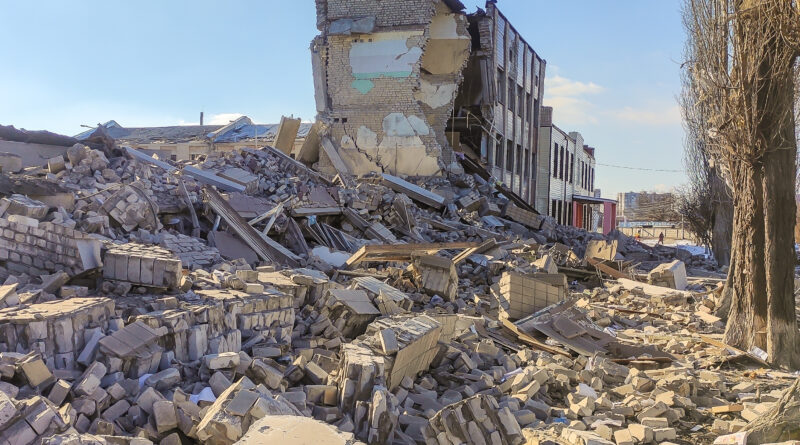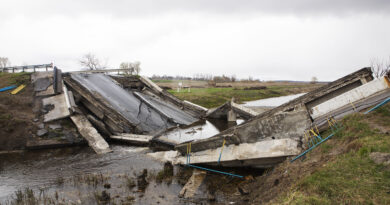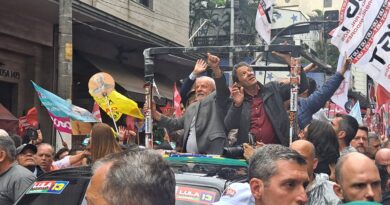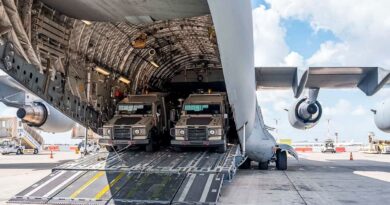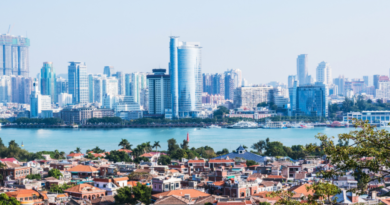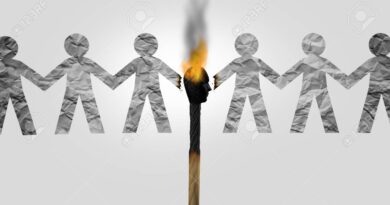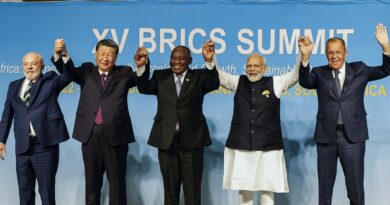Spain crosses its fingers to come out of the crisis and the war in Ukraine well
HORACIO VIXANDE
Spain faces, without control of its own future, a winter marked by the war in Ukraine. Inflation, the shortage of raw materials, the crisis in supply chains and the rise in fuel prices are the focus of political and social debate in the country. On the war, beyond the propaganda in favor of the continuity of the military confrontation, there is a cloak of silence that could be confused with consensus.
The crisis that was looming last summer, has been accentuated as a result of the invasion of Ukraine and has ended up taking over the economic landscape throughout Europe. Spain is no exception, but the distance that separates it from the east of the continent has somewhat cushioned some of its effects, such as eventual power cuts to homes or businesses.
Beyond the economic effects, and regardless of the positions held on the invasion of Ukraine, the truth is that in Spain the debate on the conflict, its consequences and its management by Western countries does not exist and has been replaced by censorship on the one hand and propaganda on the other. Access to information without government filters is almost impossible unless channels such as social networks are used, which makes it difficult to form contrasting opinions.
Even the few media outlets that traditionally report on vetoed aspects such as the business of the former King Juan Carlos de Borbón, reproduce Western warmongering propaganda almost verbatim. Nor is the presence in the government of a party like Podemos, some of whose leaders have shown reticence about Spanish involvement in the conflict, decisive. Although the parties of the left-wing coalition government, PSOE and Podemos, have not closed ranks regarding the alignment of President Pedro Sánchez with NATO, they do not clearly show their discrepancies either.
In this context, it is not possible to question aspects such as the shipment of weapons to Ukraine, the war economy in Europe or the return to bloc politics. As always, war justifies everything, although there is always a little room for cynicism.
Algeria, Western Sahara, Morocco and the gas business
The invasion of Ukraine was conceived in Madrid as an opportunity to make the country a platform for supplying energy to central and northern Europe, which is highly dependent on Russian gas. However, at the beginning of the conflict, a series of events undermined Spain's ability to manoeuvre. Algeria, a traditional rival of Morocco, took advantage of the end of the natural gas supply contract to Rabat, in November 2021, to definitively cut off the sale of this fuel to Morocco, leaving a gas pipeline that extended to Spain unused. In this way, the gas connection between the Iberian Peninsula and Algeria was reduced to a single direct gas pipeline across the Mediterranean.
To make matters worse, only a month after the beginning of the invasion of Ukraine, Spain changed its position on a crucial issue in North Africa, the question of Western Sahara, currently illegally occupied by Morocco. As an ancient metropolis, Spain had the obligation to resolve the decolonization of the Sahara through a self-determination referendum under the auspices of the United Nations. He always expressed himself in this sense until March 2022, when, by surprise, the Prime Minister, Pedro Sánchez, sent a letter to Rabat implying Spain's support for the Moroccan annexation plan. The letter provoked the anger of Algeria, the main supporter of the Saharawis. There has been much speculation about the reasons for this change in position, but they have not transpired. We only know its effects and its beneficiaries.
The disagreement with Algeria did not mean an interruption in the sale of gas to Spain, but it left this country in the arms of the United States and its gas industry. As a consequence, America has replaced Algeria as the main supplier of gas to the country. Before, most of the methane came by pipeline from North Africa, now it comes by ship at significantly higher costs. In any case, the price of American gas is unknown, since it appears in not very transparent contracts signed by the importing companies. The government assures that the sum is not so important.
Even more disconcerting is the revelation that Spain has become one of the main European importers of liquefied gas from Russia on board gas carriers. Its storage and regasification capacity facilitate the arrival of gas by sea.
Spain's purpose is to import methane by ship or gas pipeline, store it and transport it to Europe through various gas pipelines, some of which are yet to be built. However, in the medium term it intends to use its renewable energy sources to produce green hydrogen to transport by gas pipeline to Germany and other countries in central and northern Europe to feed its industry. It has never even considered using this comparative advantage to support its own industrial sectors against Germany and other European countries.
In any case, twenty years after the first edition of Jeremy Rifkin's famous book, The hydrogen economy, Spain signs up for a revolution that never happened. The promise of a world in which hydrogen, as an energy vector, would free countries from dependence on oil and bring with it decentralized energy production, was, in its day, criticized as chimerical and fanciful. Will it come true now?
The curse of the geostrategic situation
Located in the southwestern corner of Europe, being at the same time the gateway to the Mediterranean, bordering Africa and bordering the Atlantic, Spain is a strategic enclave, although this advantage sometimes seems like a curse.
After a failed coup in 1936 and a subsequent civil war as a result of the military uprising against the Spanish Republic, the victory of the rebel forces in 1939 plunged the country into a dictatorship that immediately aligned itself with Nazi Germany. General Francisco Franco's regime even sent an army corps—the Blue Division—to fight alongside Hitler's troops in the invasion of the Soviet Union.
The allied victory in 1945 seemed to lead to the liberation of Franco's Spain, but it did not happen and the United States preferred to make the country an anti-communist enclave, which lasted until 1975, with the death of the dictator Franco and the establishment of a democracy. parliamentary
However, Spain did not manage to get rid of North American tutelage, which today is more accentuated than ever. After Franco's death, she joined NATO and, although there were periods in which she tried to keep her distance from the United States, she did not always achieve this goal. Not only did it participate in the first war in Iraq as a result of the invasion of Kuwait, but it was, together with the United Kingdom and Portugal, one of the few European allies of the United States that took the side of this country in the second war in Iraq.
Recently, the rapprochement of the United States with Morocco, Spain's traditional strategic rival in North Africa, resulted in the renewal of Spanish Atlanticism, which in fact implied almost unconditional support for the United States in the recovered bloc policy. that took place after the invasion of Ukraine by Russia. Thus, today it is not only a faithful ally of the North Americans, it is also one of its buenos customers.
Horacio Vixand he is a journalist

